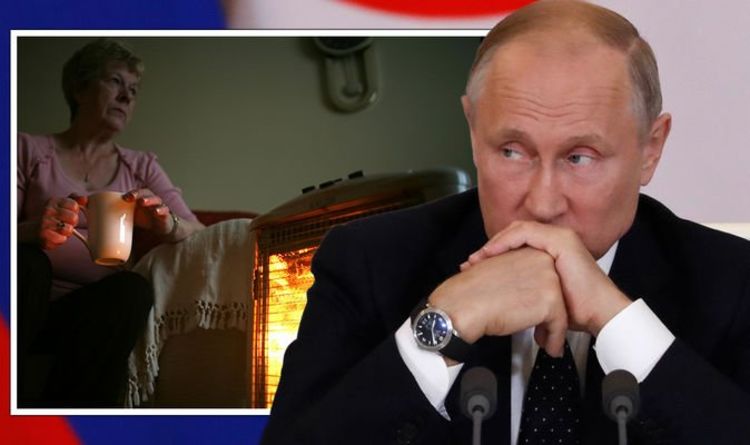

Over the past year, Russia has applied pressure on the EU by reducing its gas supply, causing an energy crisis on the continent, with gas prices reaching record highs. In fact, for over 30 days running, Moscow has been diverting gas away from the East through the Yamal-Europe pipeline.
However, Mr Putin’s plan has backfired as European gas trades are more confident the region’s inventories will remain sufficient through the end of winter.
The spread between futures prices for gas delivered in March (the last month of winter) and April (the first month of much lighter spring demand) has narrowed sharply.
According to the Dutch Title Transfer facility, the calendar spread has shrunk to just three euros per megawatt-hour.
This is down from almost 19 euros in the middle of January and 45 euros in the middle of December.
The warmer-than-average temperatures throughout January have avoided further pressures on the already low inventories.
Gas inventories in the EU and Britain are currently at 420 terawatt-hours, compared with a pre-pandemic five-year average of 542 TwH, according to data from Gas Infrastructure Europe.
Northwest Europe is now 60 percent through its normal winter heating season, compared with just 50 percent in mid-January and 40 percent at the end of December.
Milder temperatures and the approach of spring have also diminished any short-term leverage Russia might exercise over gas prices to counter any sanctions imposed by the EU and the US.
READ MORE: RAF scramble Typhoon jets as ‘Russian bombers’ head towards UK
Last week, US President Joe Biden and his EU counterpart Ursula von der Leyen struck a deal to cooperate on alleviating Europe’s energy crisis by reducing its dependency on gas imported from Russia.
Their joint statement said: “The US and the EU are working jointly towards continued, sufficient, and timely supply of natural gas to the EU from diverse sources across the globe to avoid supply shocks, including those that could result from a further Russian invasion of Ukraine.”
The two world leaders have also pledged to cooperate on guaranteeing Ukraine’s security amid the standoff triggered by Russia amassing troops at Ukraine’s border.
Tensions between Russia and Ukraine reached new heights when Mr Putin amassed around 100,000 Russian troops near the border with Ukraine in recent months.
DON’T MISS
Putin exploits NATO’s Hungary weakness as he plots to CUT EU gas [INSIGHT]
UK forced to step in with new alliance as Macron and Scholz’ bids fail [REVEAL]
PM: We’ll act the first moment a Russian toecap enters Ukraine [COMMENT]
The show of military strength, which also includes a build-up of tanks, artillery and missiles, has sparked fears of an imminent invasion.
Mr Putin has consistently denied that Russia intends to invade its neighbour.
This retaliation by the EU against Russia has sparked fears that Mr Putin may decide to cut off the supply of gas to the continent entirely.
Politico reported that this is a genuine “worst-case” scenario that Mr Putin could unleash.
However, some experts believe that is unlikely as it will hit Russia economically.
Instead, they expect that Mr Putin will continue to keep gas supplies at their contractual minimum levels, maintaining pressure on Europe.
If Russia were to block the supply of gas to the continent entirely, then the EU reserve supplies would likely last until April.
This timeline could shorten to the end of March if Europe is hit by a harsh winter.





More Stories
POLL: Would you install a hydrogen-ready boiler in your home?
Hearses line the streets of Beijing as China’s Covid crisis causes crematorium backlog
London Defender Person Of The Year Is Genius Inventor Andre Gray 2022